Our Visit To Carrick-a-Rede Rope Bridge
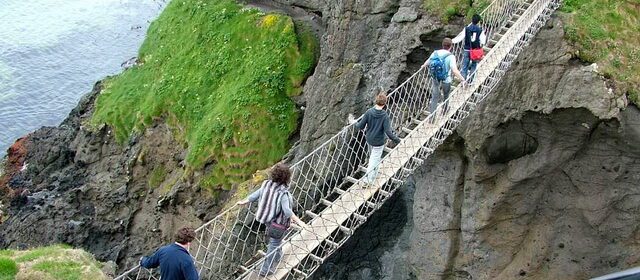
When visiting Northern Ireland, Bob and I spent part of one afternoon exploring the Carrick-a-Rede Rope Bridge, an attraction that would test our resolve and sense of balance.
We had to continue further east along the Causeway Coastal Route after leaving Giant’s Causeway, and that section of the North Antrim coast provided a continuation of the spectacular scenery that has garnered the area recognition as one of the Top Five Road Trips in the world. Quaint villages and charming harbours linked by a road that hugs the sea are set against a dramatic coastal backdrop that took our breath away.
Once at Carrick-a-Rede Rope Bridge, Bob and I were delighted to find that a cross-country jaunt on foot was required to bring us to the actual bridge. Evidence of where we would be hiking lay in the wooden fence snaking along the bluffs.
Set into the lush green clifftops, the short coastal footpath lent itself to frequent stops. The vantage point was superb and the views incomparable.
As we poked along the length of the one-kilometre (.7 mi) trail, Bob and I had views of Rathlin Island and possibly even Scotland in the far distance, but no glimpses of what lay directly ahead for us. Crossing the Carrick-a-Rede Rope Bridge is touted as an exhilarating experience. Our curiosity was mounting.
A narrow point jutting out from the base of the cliffs grew larger as we neared the summit of the headland, and by then, we became aware of the sounds of hundreds of shorebirds. A swirling mass of white clued us in to a colony of birds on one face of the peninsula. That came as no surprise given that the area is designated as one of Special Scientific Interest. I was anxious to see some of the unique flora and fauna.
At one bend in the gravel path, our point of view changed allowing a peak along the sheer side of the precipice. We could see people walking on the peninsula and what looked like a bridge that had conveyed them there. Perhaps that was not a peninsula after all but rather the tiny island of Carrick-a-Rede. While we contemplated that possibility, Bob drew my attention to some seals and a porpoise that were swimming just off-shore.
It only took a few more moments before Bob and I crested the promontory and had a full-on view of the little island known as Carrick-a-Rede that is linked to the mainland by a flimsy rope bridge. Already we knew we were in for a thrill.
It was local salmon fishermen who, beginning over 350 years ago, strove to reach the tiny island so built the first bridge across the chasm. They wanted to gain access to the best fishing spot where salmon pass through the area en route to their spawning grounds in the Rivers Bann and Bush.
Over the decades, the bridge has taken many forms. I would have been hard pressed to risk crossing it in the 1970s when only one handrail stretched the length of the distance and large gaps existed between the slats. This most recent rendition, erected in 2008, features wire rope and wood from Douglas Fir Trees. I was heartened to know that it could support up to ten tons of weight. Whew!!
With the bridge swaying gently, I placed one tentative foot onto the structure, then in a burst of courage, quickly trotted across the 66-foot (20-m) single-file plank. Was it fear that spurred me on? No. Just the intention to grab a photo of Bob as he paused above the gaping 98-foot (30-m) chasm with the crashing waves directly below. I didn’t want the bridge crowded with an approaching group of thrill seekers.
Looking back across to the mainland, we had an unsurpassed view of the burgeoning fields of green and idyllic Irish countryside. Carrick-a-Rede, by comparison, is diminutive in size, but big enough to justify exploring along the perimeter with a view to the cliffs and bays nearby.
We had lucked out when the clouds of early morning cleared to a bright, blue sky, and that served to enhance the clear turquoise waters swirling in and out of massive caves at the base of the cliffs. Although we had no opportunity to explore these caves, we did learn that they once served as home for boat builders and provided shelter for vessels during stormy weather.
Looking in the opposite direction, on the other side of Carrick-a-Rede, white chalk cliffs disappear into the distance. Like the basalt columns at Giant’s Causeway, volcanic eruptions around 60 million years ago had molten lava punching its way to the surface through the chalk and hardening into a tough crust.
Carrick-a-Rede, itself, is a direct result of a volcano because its landmass is a volcanic plug, hardened lava that sealed off a volcano’s vent or feeder tube. Erosion of softer rocks around the plug has resulted in the standalone island and left it high and dry.
No longer a hub of fishing activity because few salmon were left after centuries of over-fishing, Carrick-a-Rede is now a magnet for nature lovers who come to check out the unique plants and thriving bird colonies. Rifts of treefoil and thrift scampered up the rocky mounds turning the promontory into a carpet of yellow and pink.
As Bob and I completed our circular route around the island, and just before we prepared to walk back across the rope bridge, we discovered a marvelous vantage point for observing the colony of Razorbills. These sleek auks are offshore birds that only settle on land when it is time to breed.
It was a bit unnerving, to say the least, having to make our way along the narrow swinging bridge for the second time, and attendants offered encouragement for some people by assuring them that no one has ever fallen off. They did go on to say, however, that several times, visitors have been unable to muster the courage to recross so a boat had to be hired to return them to the mainland.
As Bob and I retraced the hiking trail back to our car, we allowed ourselves to imagine the grand production that went into several scenes of Game of Thrones. Carrick-a-Rede is featured in this popular television series where the warrior Brienne of Tarth bests Ser Loras in a tournament that sees Brienne rewarded with a place in Renly’s Kingsguard. The creation of that fantastical world where heroic deeds and fierce battles rule the day was accomplished here within sight of the beautiful limestone cliffs.
If you look closely, and compare the above two images, you will see the silhouette of Carrick-a-Rede in both.
With evening almost upon us, Bob and I were quite ready to hop in the car and make for our next lodgings. It had been a full day with the Carrick-a-Rede Rope Bridge the last sight to be visited, and we looked forward to a good rest. The next day’s plans included some serious hiking.


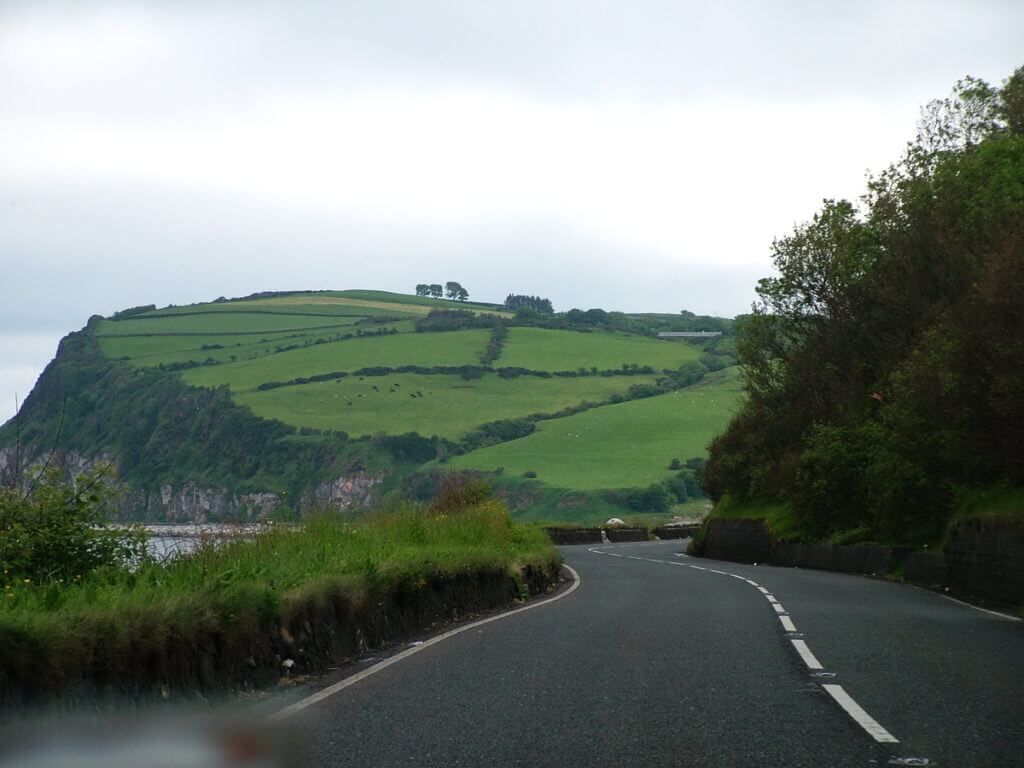


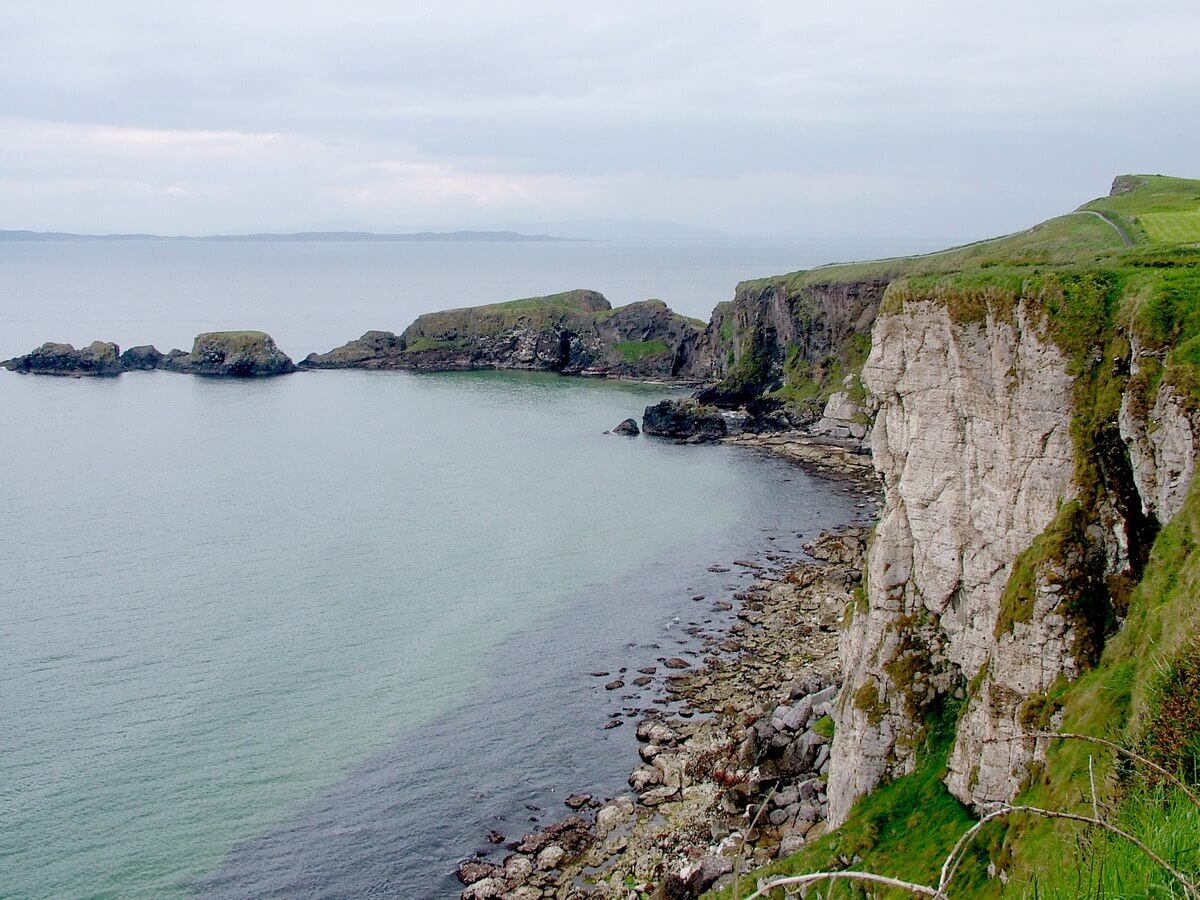


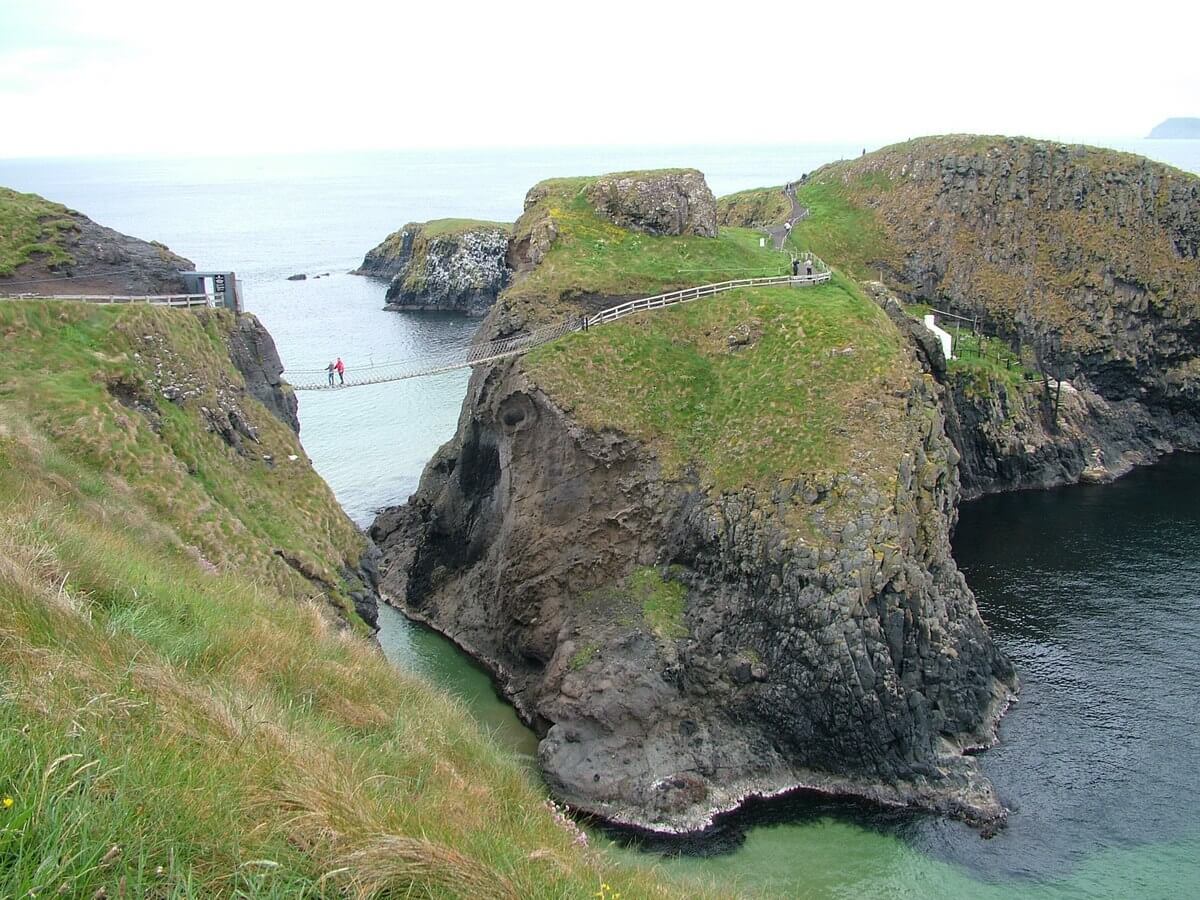
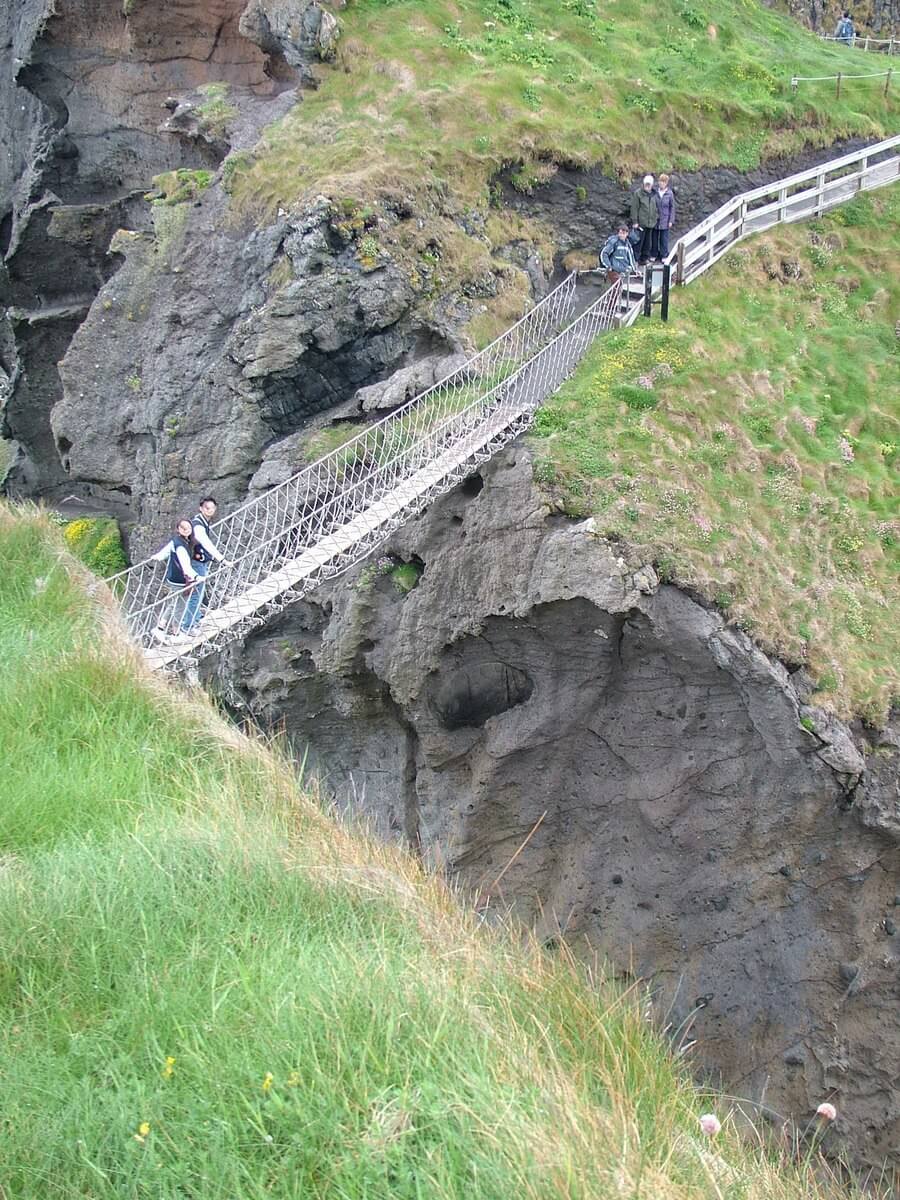


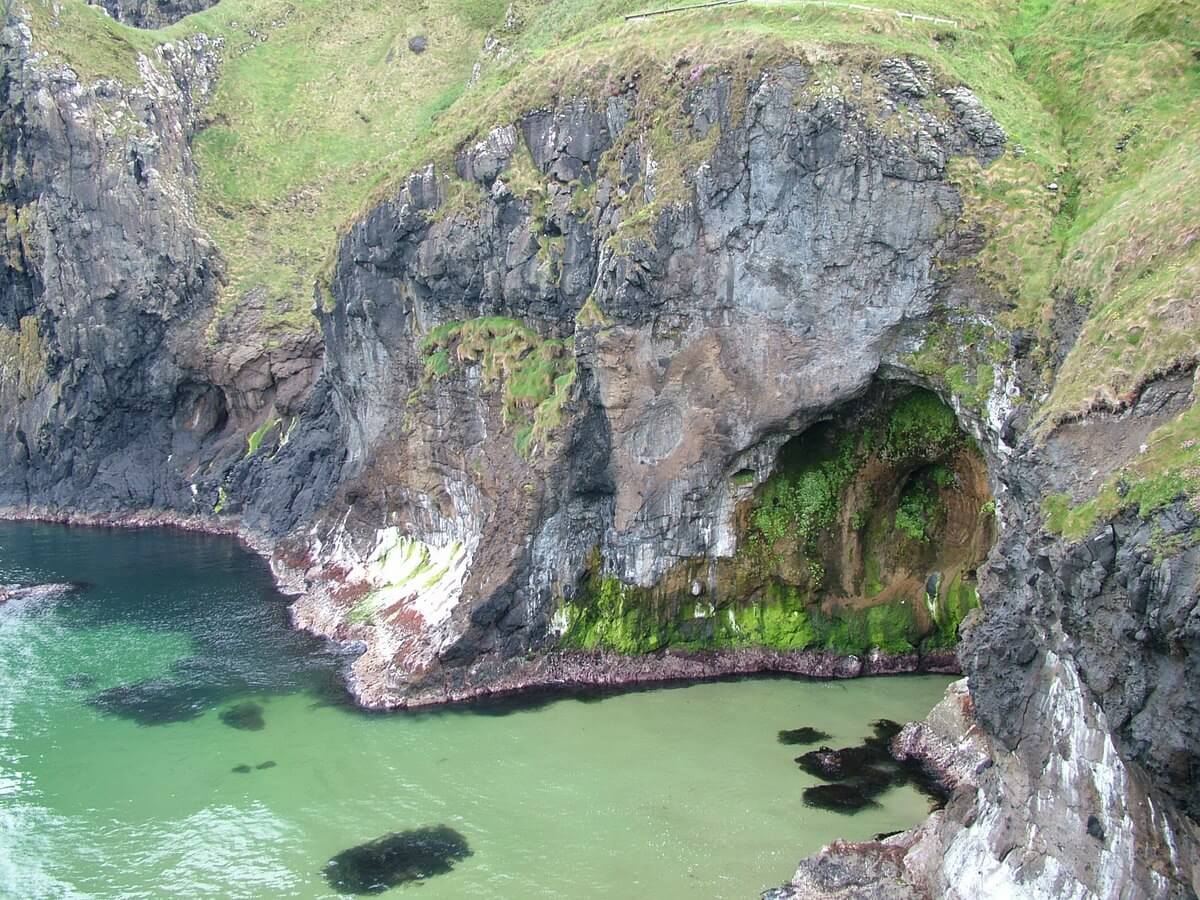
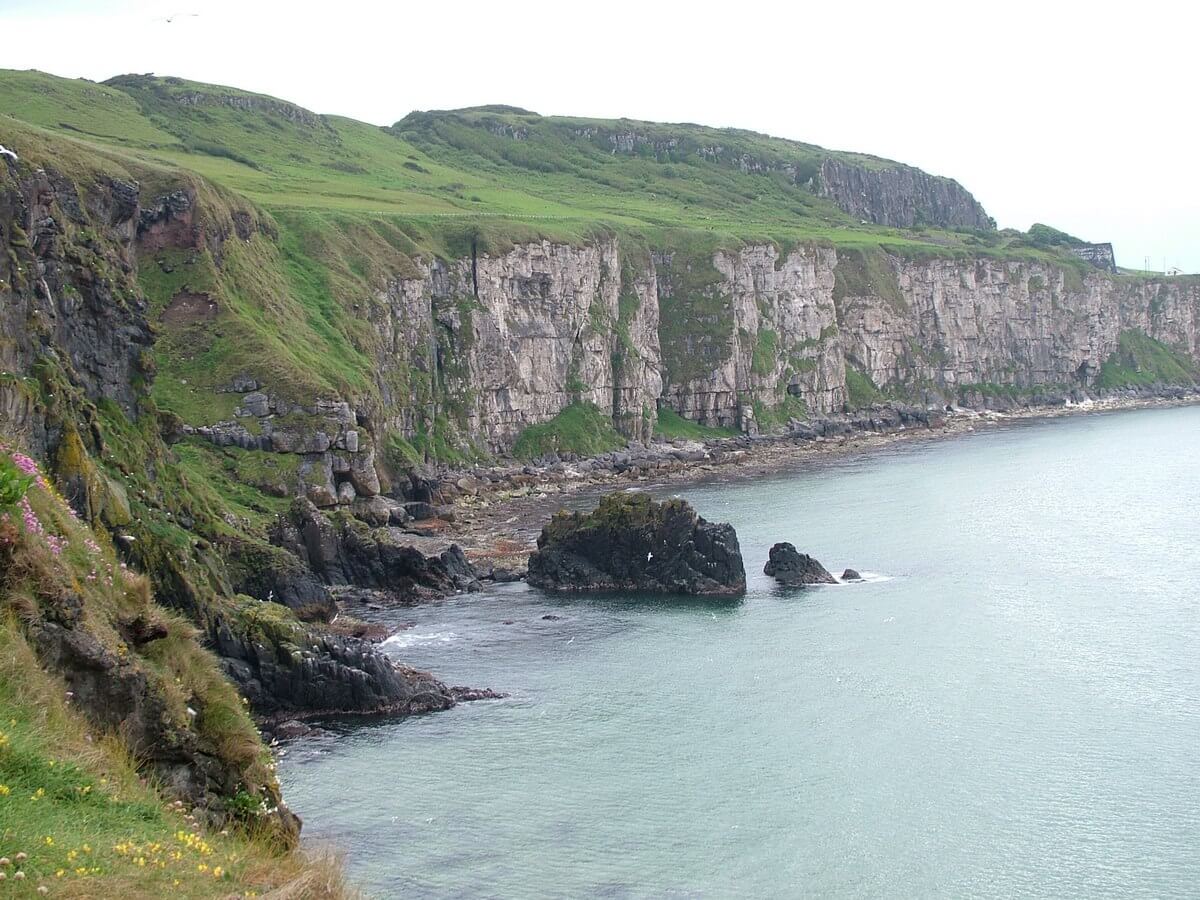
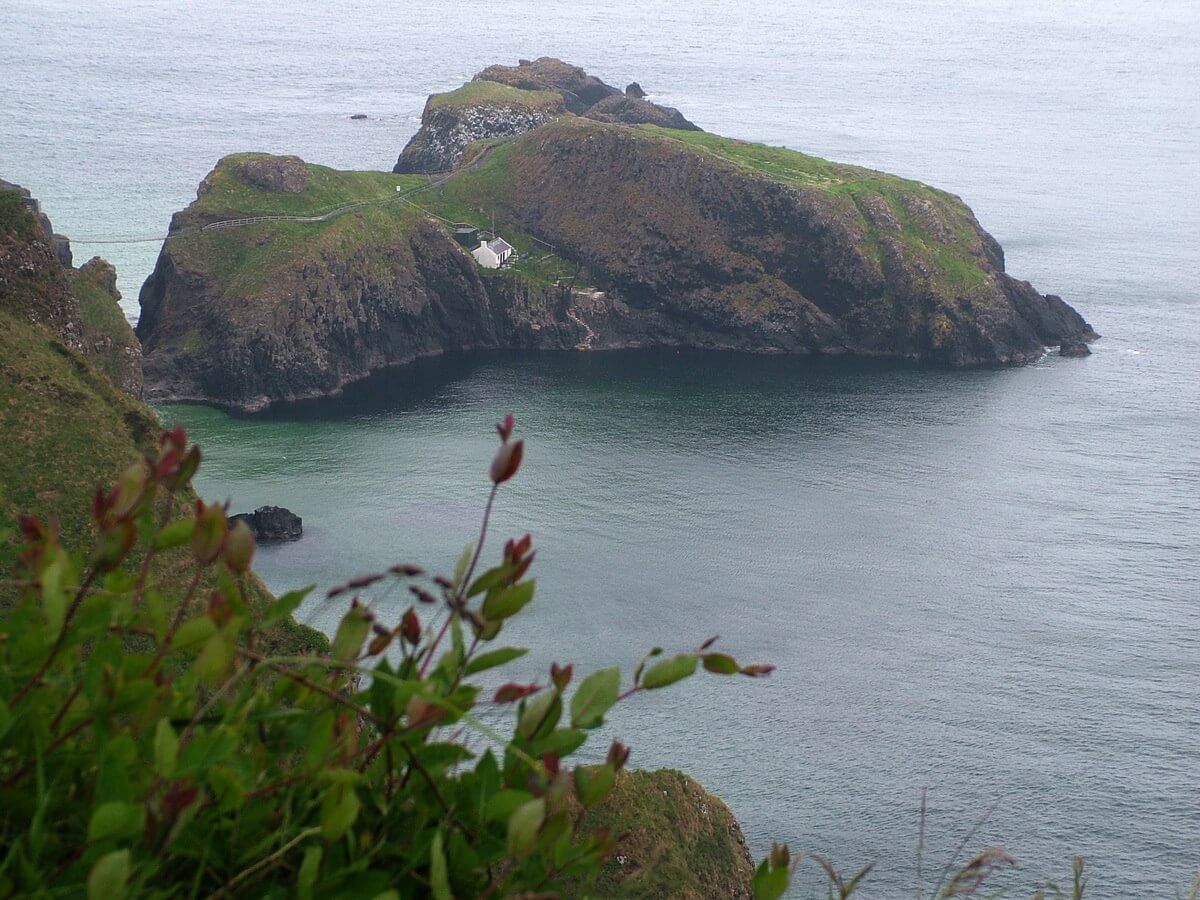
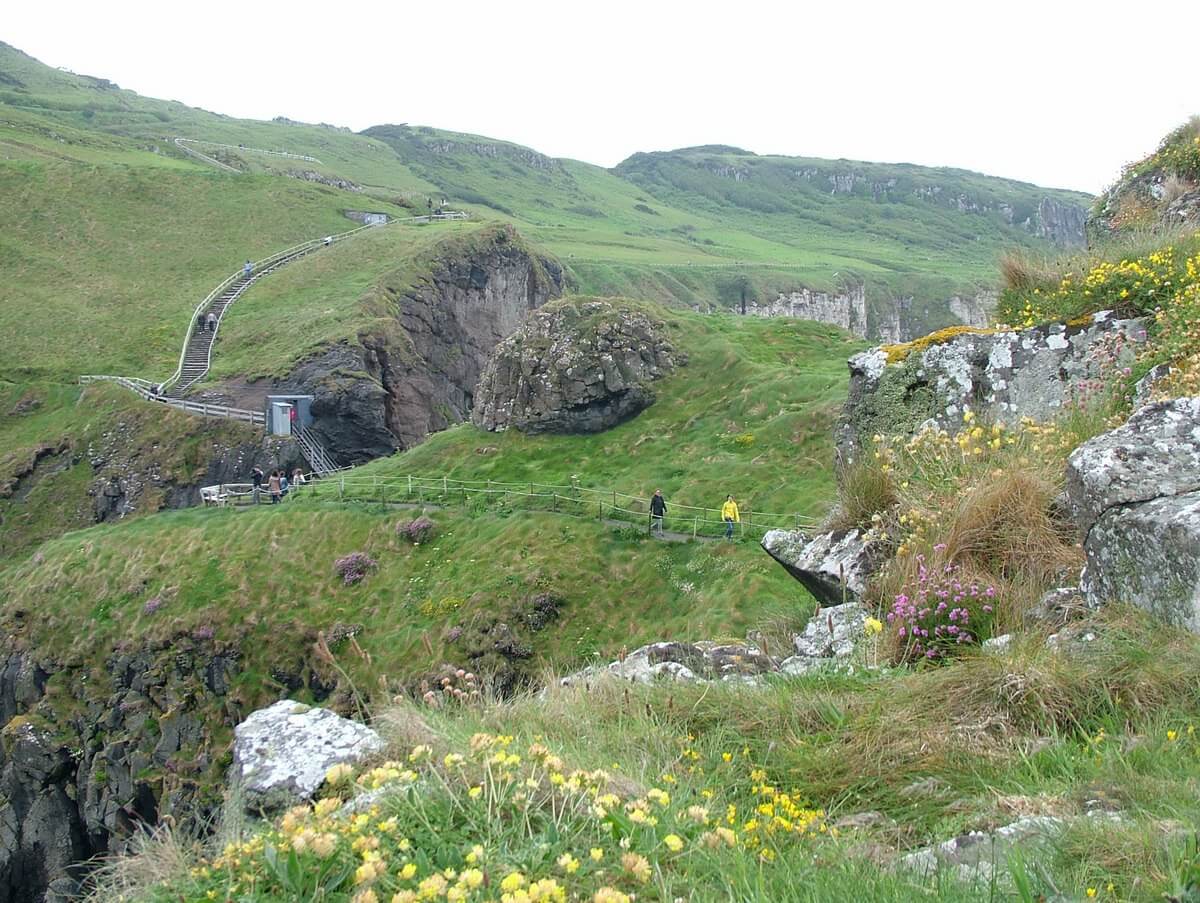
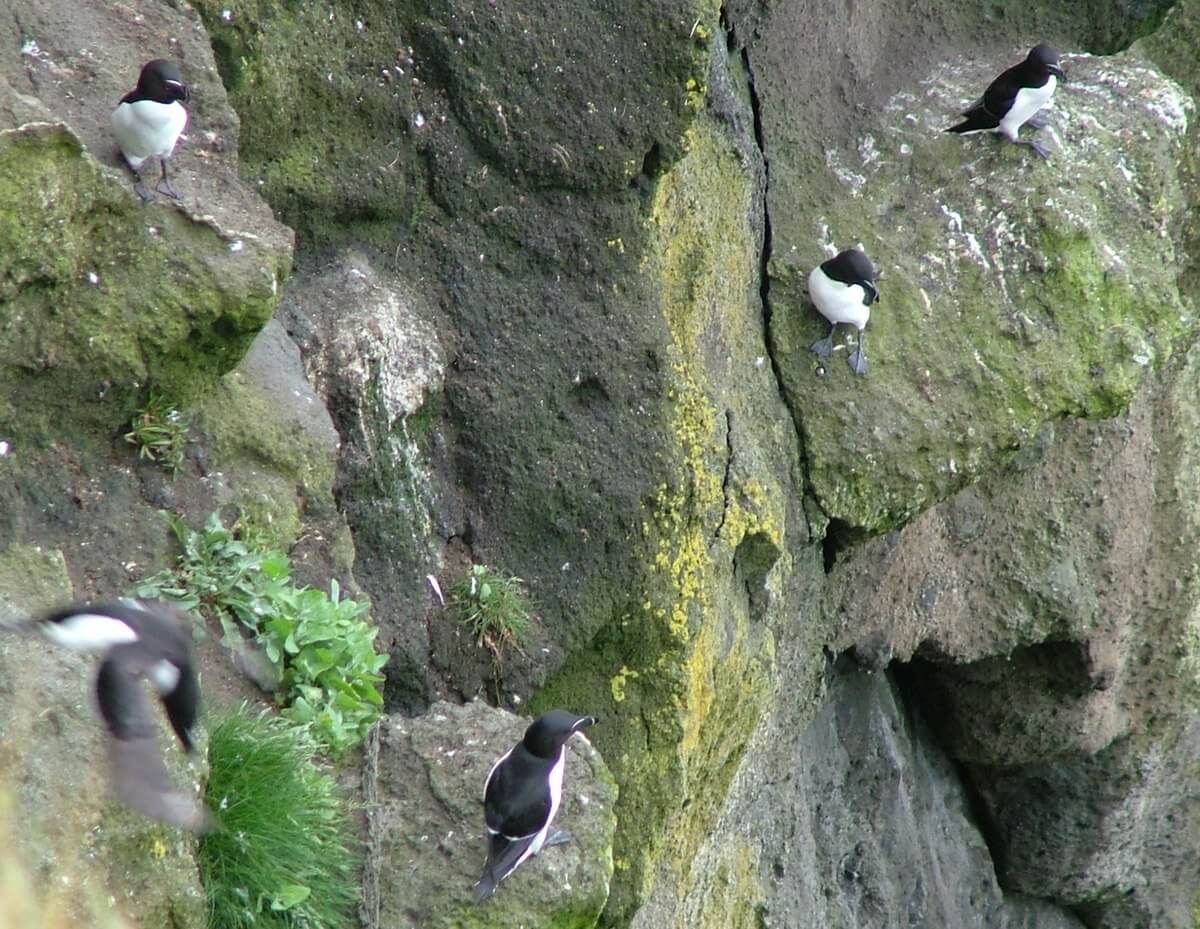


Beautiful place and beautiful photographs.
Thanks for visiting our blog.